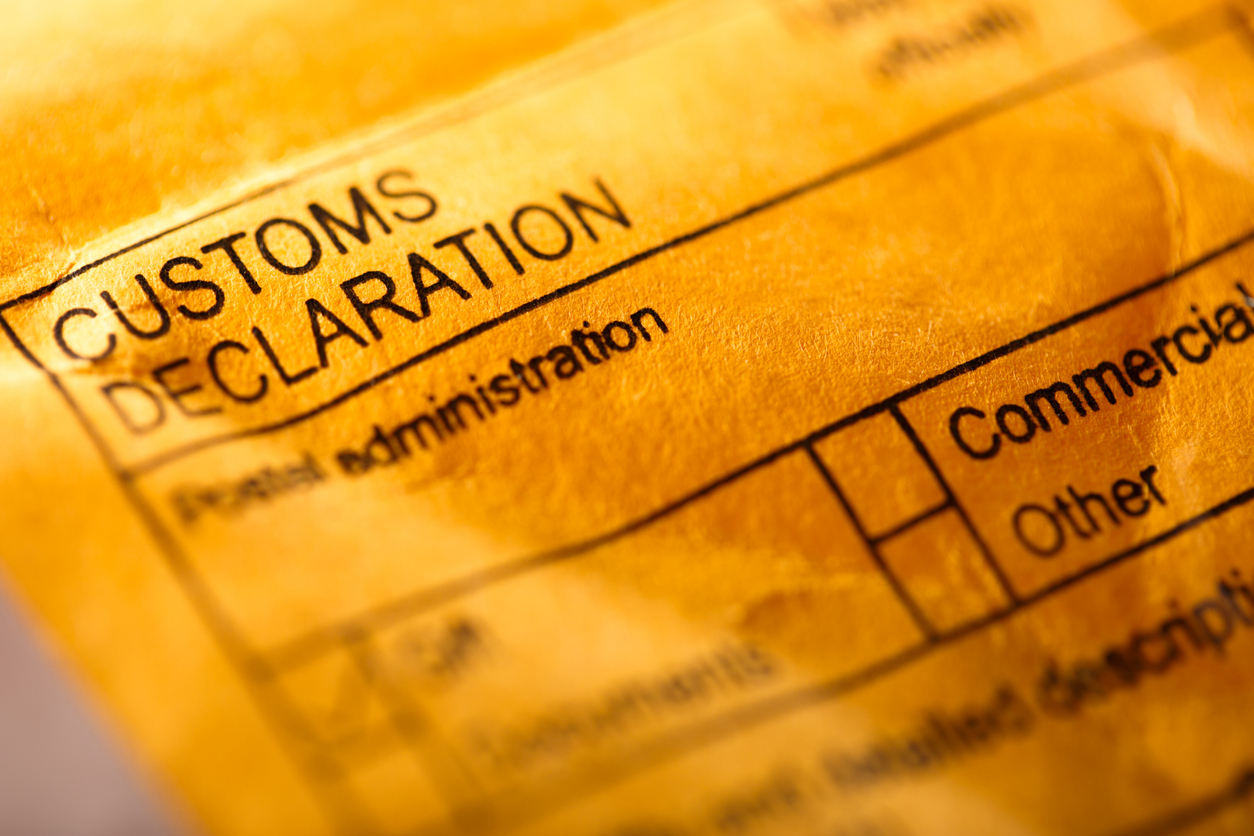Undervaluing imported goods to fraudulently reduce the customs duties owed is the most common means of committing customs fraud. It not only cheats the U.S. government but disadvantages law-abiding importers.
If you have evidence or information about importers undervaluing imported goods, you can report that wrongdoing to the U.S. government by filing a qui tam whistleblower lawsuit and receive a whistleblower reward of 15%-30% of any recovery. Contact customs-fraud whistleblower attorney Mark A. Strauss to learn more.

What is Undervaluation in Customs Fraud?
Importers are required to report the customs value of the goods which they are importing on their CBP Form 7501 entry summary, known as a “customs declaration.” The customs value is generally the “transaction value,” which is the price actually paid or payable by the U.S. buyer to the foreign manufacturer or other seller. A copy of the seller’s “commercial invoice” reflecting those prices must be filed with U.S. Customs and Border Protection (“CBP”) together with the importer’s customs declaration.
Customs-fraud schemes generally involve the filing of customs declarations and commercial invoices containing fraudulently understated prices or values.
Common Methods of Undervaluing Imported Goods
Falsifying Commercial Invoices for Customs-Duty Evasion
The most common method of undervaluing imported goods is for the importer to alter or tamper with the seller’s commercial invoice, fraudulently reducing its prices and values. The importer will then fraudulently pass off that falsified document to its customs broker as the supposedly true and correct original. Importers engaged in this type of scheme will often insist the seller provide its commercial invoices to them in Microsoft Excel or other readily editable file format, to make tampering with those documents easier.
Double Invoicing
Another common method of undervaluing imported goods is known as “double invoicing.” In “double invoicing” schemes, the foreign seller provides two commercial invoices to the importer—the first, with artificially low prices, for the importer to file with CBP, thereby enabling it to fraudulently reduce its customs duties, and the second, with the actual prices, for the importer to use for accounts-payable and audit purposes.
In some cases, the seller’s second commercial invoice is for the balances owed—in other words, both invoices combined represent what was actually paid or payable for the merchandise. Yet, at the request of the importer, that document is fraudulently mischaracterized as being an invoice for something else—for purported “consulting services” which the seller supposedly provided, for example, or for purported “administrative fees.” Furthermore, its value is fraudulently not included in the amount declared based on that false pretext.
Failure to Report “Assists”
Another method of undervaluing imported goods involves the failure to report “assists.” “Assists” are anything an importer provides to a manufacturer to reduce the latter’s production costs. They include tools, dies, molds, fabrics, components, parts, or materials, as well as engineering plans, sketches or designs prepared outside the United States. “Assists” are dutiable and, thus, must be declared by importers as part of the transaction value, albeit they may be prorated across more than one shipment.
Customs Undervaluation in “Related-Party” Import Transactions
Related-party undervaluation schemes involve foreign sellers which are “related” to the importer. “Related” means that the importer or foreign seller directly or indirectly owns, controls or can influence the activities of the other by virtue of stock ownership, shared officers, directors or employees, familial relations or otherwise, or that the importer and seller are commonly controlled or influenced by a third party such as a parent corporation or individual common owner.
Prices charged by unrelated sellers are presumed to be arm’s length and, thus, reflective of market values. Prices charged by “related” sellers, however, are presumed to be non-arm’s length, collusive, less than market value, and set arbitrarily with the goal of minimizing customs duties.
Importers are therefore required to report on their customs declarations if a seller is “related.” In addition, they are prohibited from using related-party prices as the transaction value unless the relationship with the seller had no influence on those prices and/or those prices approximate arm’s length prices of similar goods in the industry.
Importers engaged in “related party” undervaluation schemes will either fraudulently fail to declare that their seller is “related” and/or use customs values that are prohibited.
Understating weights or quantities
Another method of undervaluing imported goods involves tampering with the foreign seller’s commercial invoice to fraudulently understate the weights and/or quantities—and thus the total value—of the merchandise being imported, while not changing the unit prices. This type of scheme generally also involves altering or tampering with foreign seller’s “packing list.”
How to Report Undervaluation Schemes and Become a Customs-Fraud Whistleblower
With over twenty years of experience in complex litigation on behalf of fraud victims and whistleblowers—including the recovery of millions of dollars for the taxpayers in customs-fraud whistleblower cases—our mission is to provide you with the individualized attention and quality legal representation you deserve. We understand what it means to fight fraud and stand up for justice and will devote our full attention and expertise to your matter.
To explore the possibility of becoming a customs-fraud whistleblower, contact Mark A. Strauss today.
Fraud is their game.
Integrity is yours.
Free Consultation
No Fee Unless We Win!
Call or Text Now

Published By
Attorney Mark A. Strauss
Mark is a battle-hardened and tenacious anti-fraud attorney with more than twenty years of experience in complex civil litigation. He has represented qui tam whistleblowers under the False Claims Act as well as victims of fraud under the federal securities laws and the Racketeer Influenced and Corrupt Organizations Act (RICO). His efforts have resulted in the recovery of hundreds of millions of dollars for clients.
Practices
Whistleblower Practices
- False Claims Act Whistleblower Lawsuits
- Customs Fraud
- COVID-19 Relief Fraud
- Healthcare Fraud
- Government Contracting & Procurement Fraud
- Grant Fraud
- Federal Credit Assistance Fraud
- Securities Law Violations & the SEC Whistleblower Program
- Tax Fraud & the IRS and New York State Whistleblower Programs
- State False Claims Acts